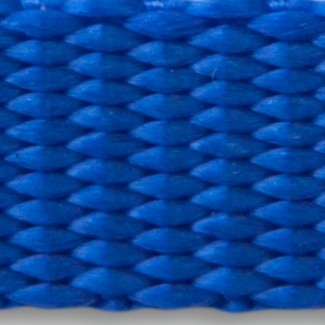- Local: (516) 346-4636
- Toll-Free: (800) 886-6060
- Fax: (516) 346-4366
- Email: kflynn@nationalwebbing.com
 Let's explore the advantages of cotton webbing and certain circumstances where its use might not be optimal. Let's delve into this fascinating subject.
Let's explore the advantages of cotton webbing and certain circumstances where its use might not be optimal. Let's delve into this fascinating subject.
Cotton webbing is a sturdy, woven fabric with various widths and weights. Manufactured from natural cotton fibers, it is a popular choice due to its versatility, comfort, and environmental-friendliness.
1. Environmentally Friendly - As cotton is a renewable resource, cotton webbing is an eco-friendly choice. It degrades naturally over time, reducing environmental impact compared to synthetic materials.
2. Comfort and Softness - Cotton webbing is inherently soft and comfortable, making it a preferred choice for clothing and accessories that come in direct contact with the body.
3. Versatility - With its ability to dye easily, cotton webbing can be customized in numerous colors, making it an ideal choice for creative projects.
4. Easy to Sew - Cotton webbing is easier to sew than many synthetic alternatives due to its softer nature. This characteristic makes it a popular choice among craft enthusiasts.
Cotton webbing finds extensive usage in various industries, some of which are highlighted below:
1. Fashion: Used in belts, bag straps, and other accessories.
2. Home Décor: Used in upholstery, curtains, and other home furnishing items.
3. Crafting: Ideal for DIY projects due to its flexibility and easy dyeing properties.
While cotton webbing offers several benefits, there are situations where its use might not be advisable:
1. Moist Environments - Cotton webbing is not the best choice for applications that are frequently wet or in high-humidity environments. Cotton absorbs moisture and can take longer to dry, leading to potential mildew problems.
2. Heavy-Duty Applications - Synthetic webbing materials might be more appropriate for extremely high-tension applications due to their higher strength and durability.
For situations where cotton webbing might not be ideal, several alternatives can be used:
1. Nylon Webbing: Offers high strength and durability, perfect for heavy-duty applications.
2. Polyester Webbing: Resistant to water and UV light, making it suitable for outdoor applications.
Cotton webbing is an excellent choice for many applications, offering advantages such as environmental friendliness, comfort, and versatility. However, alternatives such as nylon or polyester webbing might be more appropriate, considering its limitations in moist environments and high-tension applications.